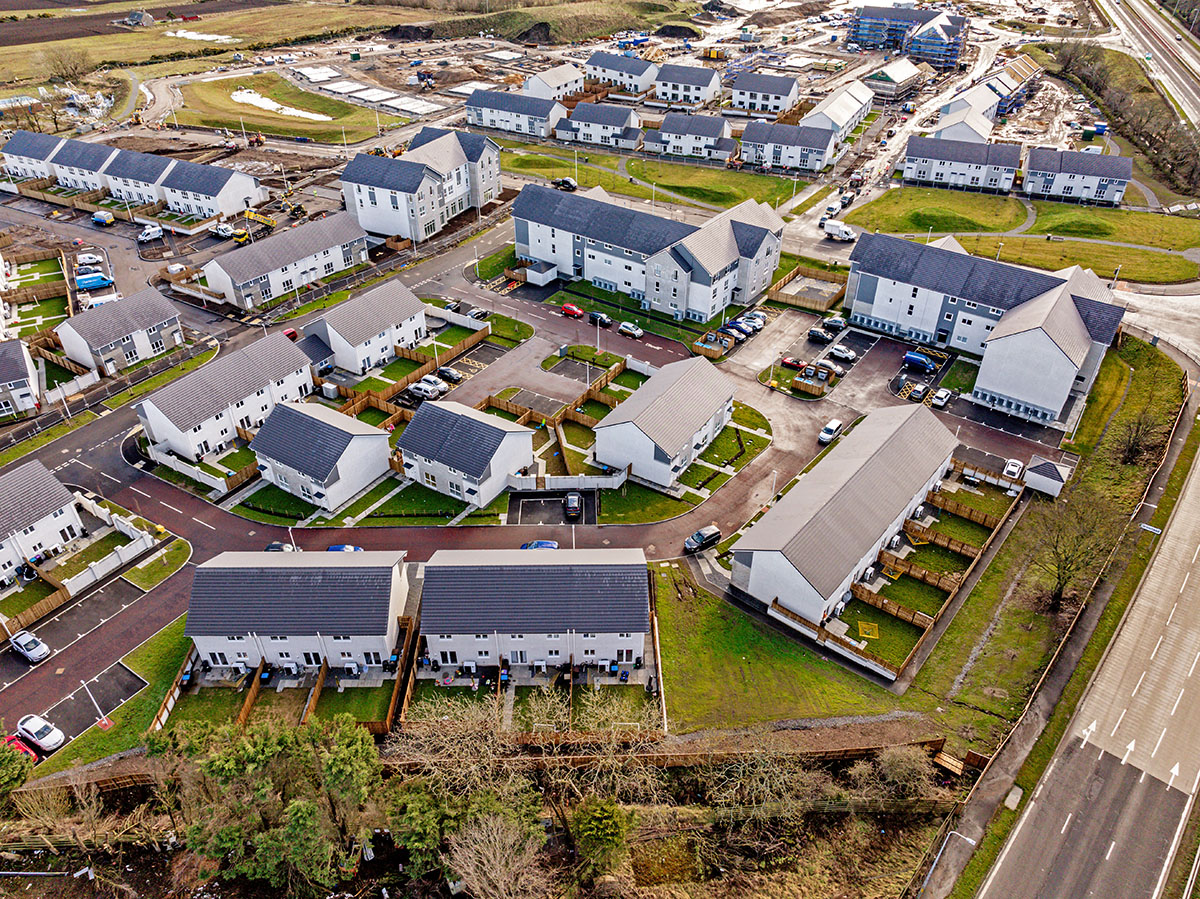
In the UK, the construction industry is in high demand and as a result, speed, sustainability, and flexibility are increasingly prioritised. Timber frame construction – perfectly poised to meet these priorities – is carving out a prominent role, particularly in mixed-use developments. With timber’s ability to cater to both residential and commercial needs, it is fast becoming a preferred choice for developers aiming to create vibrant, multi-functional spaces that meet modern regulatory and environmental standards.
Why Timber Frame?
Timber frame construction has long been valued for its sustainability and efficiency, offering a lightweight, versatile alternative to traditional brick-and-block. For mixed-use developments, this adaptability means timber can be used across various building types and designs without compromising structural integrity. Timber frame construction also brings inherent environmental advantages, such as carbon sequestration and minimal site disruption, making it a choice that aligns with sustainability goals for low-carbon urban planning.
Speed and Efficiency: Cloverhill, Aberdeenshire Case Study
A standout example of timber frame’s versatility and speed is our Cloverhill Development in Aberdeenshire. This large-scale project illustrates how timber frame can accelerate project timelines while maintaining quality and sustainability. Within just two years, Deeside Timberframe successfully delivered 310 units of this 536-unit development. Comprising two-storey terraces, semi-detached houses, cottage flats, and three-storey apartment blocks, Cloverhill showcases timber frame’s ability to streamline building processes, making it a premier choice for Modern Methods of Construction (MMC).
Cloverhill exemplifies how timber frame construction allows for rapid deployment in mixed-use developments, an essential factor for developers who need to meet strict project timelines and housing demands. The pre-fabricated nature of timber frame kits allows for quick assembly on-site, reducing both build time and on-site disruption — an invaluable benefit in densely populated urban areas.
Timber Frame’s Flexibility in Mixed-Use Projects
Mixed-use developments require diverse building types, from residential spaces to commercial units, each with unique structural demands. Timber frame’s adaptability allows developers to meet these needs within a single cohesive development. It provides the structural flexibility required for varied architectural styles and complex site layouts, from compact residential spaces to spacious commercial units, while maintaining an eco-friendly approach.
In addition to the architectural flexibility, timber frame construction also aligns with modern energy efficiency and regulatory requirements, including Part L and Passivhaus standards. This makes timber a fitting choice for mixed-use projects that aim to be future-proofed, cost-effective, and aligned with evolving standards for sustainable urban living.
A Sustainable Solution for Urban Growth
The growing demand for affordable, sustainable housing is putting increased pressure on construction timelines and methods. Timber frame construction provides a solution that not only meets these demands but also brings additional environmental benefits, including a lower carbon footprint and reduced waste. By opting for timber frame, developers can achieve an eco-friendly construction process and deliver structures that contribute positively to the urban environment over their lifecycle.
Building Better, Faster, and Greener with Timber Frame
Cloverhill and similar mixed-use projects underscore the advantages of timber frame as a Modern Method of Construction. Timber frame construction is uniquely positioned to support urban growth by offering developers a sustainable, flexible, and efficient building solution. As we look to the future, it’s clear that timber frame will continue to play a crucial role in delivering high-quality, sustainable mixed-use developments that are built to last.
For more information on timber frame construction or how Deeside Timberframe can support your next project, please email info@deesidetimberframe.com or call 01569 767 123.